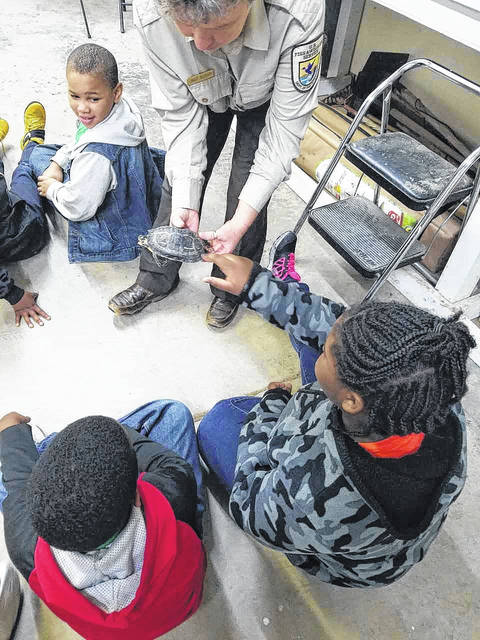Students in Richmond and Anson counties will investigate natural sciences hands on next spring under a USDA grant-financed program that pairs local schools with 4-H educators.
Second-graders will be the first to participate in the 4-H STEM Education & Science Literacy Project. Because students from one or more grades will be added each year, those in kindergarten through grade five are scheduled to take part by 2019-20.
“We’re trying to educate the whole child in all aspects of their life,” said Kristy Burja, regional STEM education coordinator for the N.C. Cooperative Extension, financed by N.C. State University.
That’s why the program will include classroom lessons, field trips and “after-dinner science kits” children can complete with their parents, using materials found at home.
Three universities will provide materials under a grant from the U.S. Department of Agriculture: N.C. State, N.C. A&T, and Clemson. Participating schools will come from four counties: Richmond and Anson in North Carolina, and Marlboro and Dillon in South Carolina. The schools are relatively close to one another, and all bear the USDA designation of being in “communities of persistent poverty.”
Monroe Avenue Elementary School is the Richmond County participant. Anson County’s first choice for the program fell through; a second is pending.
The Children, Families and Youths at Risk grant comes from a congressional appropriation to 4-H Extension services for community programs that target at-risk children and their families. Such children often attend schools that have difficulty providing broad opportunities to learn science, technology, engineering and mathematics.
The grant allows universities to develop the STEM programs so teachers will feel more comfortable with their abilities, Burja said. When teachers are comfortable, they present children with more opportunities to learn, and test scores rise.
Schools in both North Carolina counties already work with 4-H agents.
In Richmond County, Alyson Hoffman monitors second-graders who hatch and raise chickens from incubator to processing at the local Perdue plant. She will continue such instruction this spring.
“Basically, the students act as mother hens,” Hoffman said. They watch their chicks “pip out” of their shells, house them in a class-made brood box and raise the chickens for their meat.
“(The chickens) are what they’re going to see on their table,” Hoffman said. “Typically, they handle it really well — basically, better than the teachers.”
Children in Anson County visit the Pee Dee National Wildlife Refuge with agent Roshunda Terry to study animal life cycles, soil and forestry. They learn the parts of trees, handle reptiles, examine some of the 81 types of soil found in Anson County and seine a pond for aquatic life.
“We’re trying to build the complexity of science topics as they get older,” said Burja of N.C. State. By the time participating students reach fifth grade, they will have studied embryology and animal life cycles, soil and plant life cycles, and ecosystems, microbiology and genetics. Students will approach each topic through the use of science, technology and mathematics — and they will write about their experiences, which rounds out STEM studies with language use.
N.C. State will evaluate both teachers and students on their growth in STEM knowledge, both to see how the grant is working and to see whether test scores rise.

